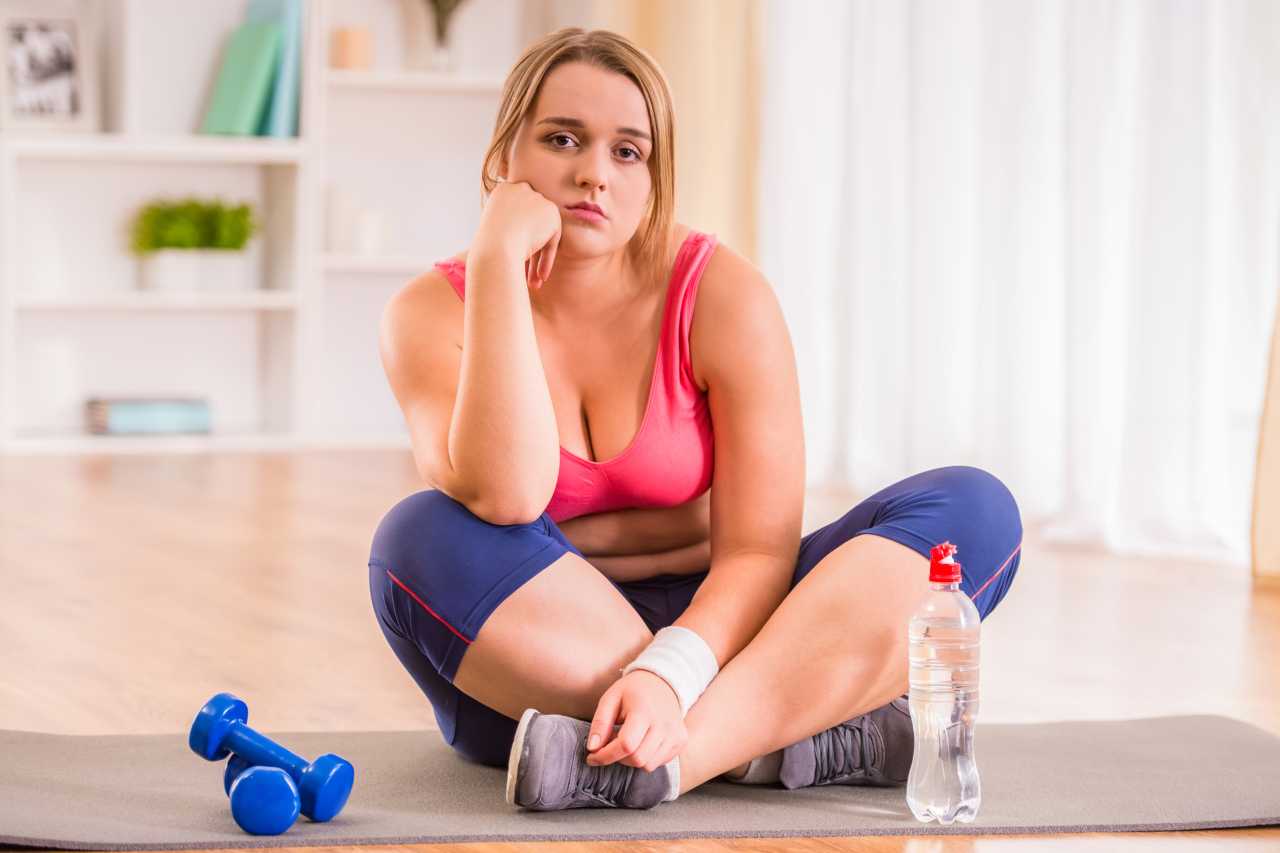Get In Touch
Info@fitfaysal.com

It seems only logical that when you lose weight in general, your chest takes a hit too, right? This begs the question: Can weight loss reduce breast size?
Hormonal influence, age, and genetics are all recorded factors that cause a reduction in breast size. Weight loss may also lead to reduced breast size, although not significantly.
Breasts are an integral part of a woman’s physique and are often associated with femininity and self-image.
So, it is only natural that weight loss’s potential impact on breast size becomes a significant point of curiosity and concern.
In this comprehensive analysis, I dig into the relationship between weight loss and breast size, exploring the scientific aspects and misconceptions associated with this commonly discussed topic.
Many people believe that losing weight causes a proportionate reduction in breast size.
This is due to the widespread belief that losing weight will result in a uniform decrease in body fat, including breast fat.
However, this belief is largely based on shared experiences and observations.
Friends or family members who have lost weight may have reported a decrease in breast size, adding to the perception that weight loss directly correlates with reduced breast size.
As a result, some women set out to lose weight in the hopes that their breast size would decrease proportionately to their overall body size.
While these beliefs are widespread, they are mostly based on anecdotal evidence and not scientifically proven results.
Individual responses to weight loss can vary depending on a variety of factors, including genetics, body composition, and hormonal influences.
This means that not every woman can naturally lose noticeable size in her breasts.

Short answer: Yes, but not to a significant amount, and only if you lose a significant amount of weight.
If you want to reduce your breast size due to feeling uncomfortable, losing weight alone may not resolve that issue.
A pilot study conducted on six relatively obese women with hypertrophic breasts to find out if intensive weight loss could lead to reduced breasts revealed a 19% decrease in breast size after weight loss.
Sounds good, right? But a 19% decrease may not alleviate whatever problems you experience due to large breasts.
Furthermore, the amount of size you can lose from your breast depends on your composition. Let me expand below.
Fibroglandular tissue in the breast is a mix of glandular tissue (which produces milk during lactation) and fibrous tissue (which provides structural support).
This is a dense part of the breast that is unaffected by weight changes.
Fatty tissue makes up a portion of the breast. The amount of fat that can be stored varies between women and influences breast size.
Weight gain can cause an increase in fatty tissue in the breast area, increasing breast size, whereas weight loss may result in a decrease in breast size as fat stores decrease.
This means that the amount of size your breast reduces during weight loss depends on your composition of fibroglandular and fatty tissue.
Understanding the composition of the breast lets you see how various factors, including weight changes and genetics, can affect breast size and appearance.
Women with more fatty tissues may experience more loss in breast size after weight loss, and vice versa.
Aside from losing weight and strength training, there isn’t much else you can do to naturally reduce the size of your breasts. This leaves you with only one solution: breast reduction surgery. This should be your final resort if you find your large breasts uncomfortable.
Aside from weight loss, here are some other factors that can influence breast size changes:
Hormonal fluctuations, notably during puberty, menstruation, pregnancy, and menopause, significantly influence breast size.
These changes frequently cause fluctuations in breast tissue density and composition, resulting in changes in breast volume.
Genetics plays a large role in determining breast size. Inherited factors can affect breast size, shape, and density.
Some women store more fatty tissue in their chest area, which is why their breasts reduce after weight loss.
This is another important factor influencing breast size.
The elasticity and firmness of breast tissue tend to decline as people age, making it appear smaller and sagging as a result of this natural process.
Muscle mass and regular exercise can indirectly impact breast size.
Specific exercises, particularly weight training, that target the chest muscles may improve the appearance of the breasts, giving them a more lifted or toned appearance.
Check out Is Jelly Good for Weight Loss?
Excess weight loss may lead to a slight decrease in breast size.
Although there aren’t enough scientific studies correlating breast size with diet and exercise, lots of anecdotal claims support this theory.
Reasons why breast size decreases vary due to factors like hormones, age, genetics, and physical activity.
Although not significant, weight-loss can result in a reduction in breast size due to the loss of overall body fat, which includes fat in the breasts.
Factors such as dramatic weight loss, menopause, pregnancy, hormonal changes, and certain medical conditions can all cause sudden decreases in breast size.
Exercise may not always result in a smaller breast, but it can tone the muscles that support the breast tissue.
Factors like weight loss, body composition, genetics, and other individual characteristics determine the varying time it takes for breast size reduction, if it occurs, in different individuals.